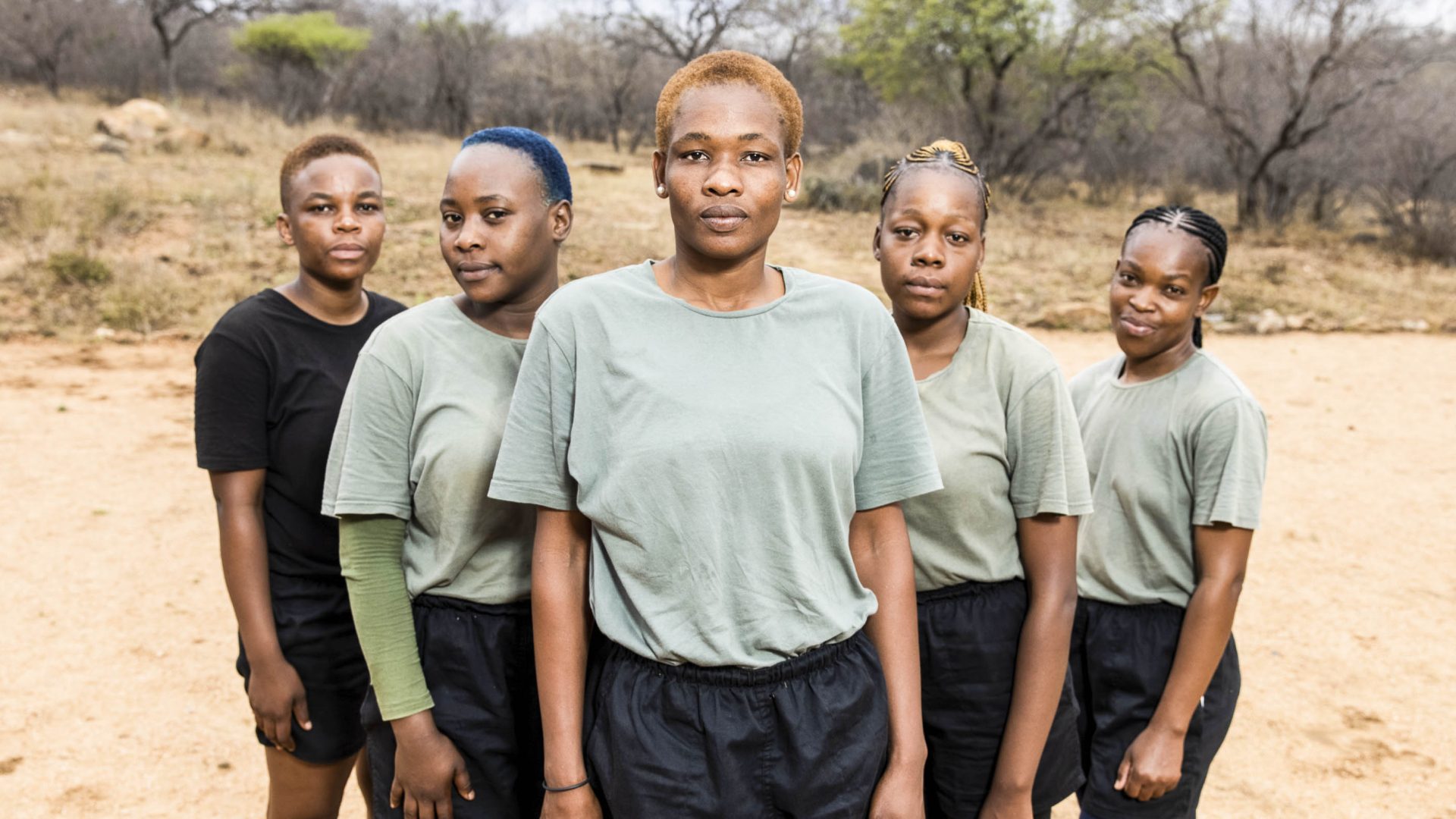
South Africa’s Black Mambas are renowned for their work in conservation and community protection. But how do they operate in a male-dominated and largely white-owned world? Jamie Fullerton joins them for a patrol.


South Africa’s Black Mambas are renowned for their work in conservation and community protection. But how do they operate in a male-dominated and largely white-owned world? Jamie Fullerton joins them for a patrol.
Debra Mukanzi seems calm, which is impressive considering that earlier today she was chased by an elephant.
“I know how to act when I come across a Big Five animal,” she says, shrugging. Mukanzi’s job with the Black Mambas anti-poaching squad here in South Africa’s Olifants West Nature Reserve is to protect rhinos, elephants, cheetahs, lions and buffalo. Even if they make a run at her.
Formed in 2013 by the Transfrontier Africa NGO and publicized as the world’s first all-female anti-poaching squad, the Mambas have become famous for flipping gender norms in rural Limpopo province. Rhino poaching has been reduced under their watch, and they lead conservation classes in local schools.
But recently, despite much media coverage about how badass the Mambas are, questions have begun to surface about whether they are mainly serving local communities, or the interests of rich park owners.
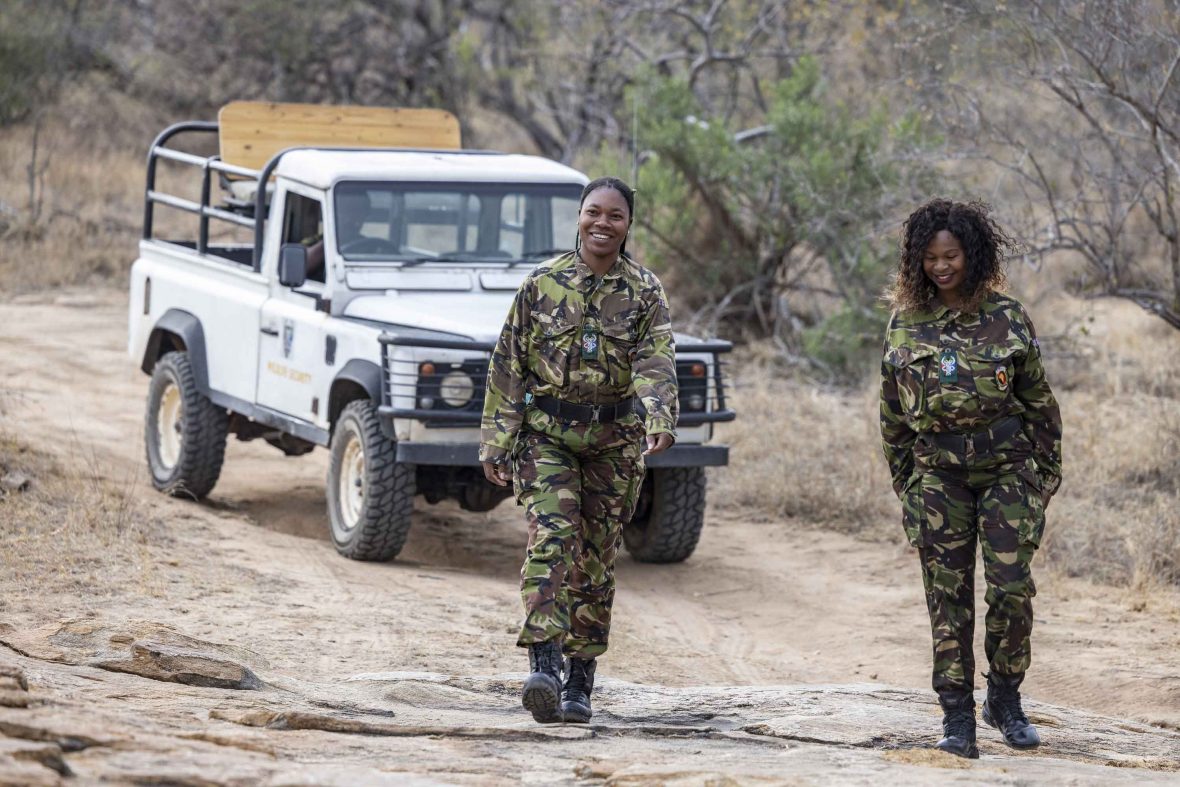
I’m getting to know some of the 28 field-active Mambas in Olifants West, part of Balule Nature Reserve and wider Greater Kruger Park. Here, the luxury Pondoro Game Lodge is the gateway to learn about their work. It’s the only Olifants West lodge that directly funds the Mambas, and whose guests can meet them on safari.
The animals ambling among Pondoro’s suites—elephant trunks dipping into jacuzzis, giraffes leaf-snacking by the restaurant—are among those monitored by the Mambas, who report potential poacher activity to their operations room. Animal snares are seized, tracks reported. If a poacher is seen, armed rangers are dispatched.
Rhino poaching was once rampant here. The animals are now de-horned to make them less attractive to poachers looking to export to Asia, where a kilogram of African rhino horn can be sold on the black market for tens of thousands of dollars. But in the past few years, rhino poaching has been eliminated in Olifants West, in line with wider declining poaching rates in Africa since COVID-19 lockdowns, but still testament to the Mambas’ influence.
Today, signs of poaching here are usually from locals illegally hunting bushmeat to eat or sell, rather than those part of organized crime. The Mambas sympathise with these poachers, who often come from their communities. “Some are greedy and just want easy money,” says operations manager Felicia Mogakane, 34. “But it’s hard, not putting food on the table. So many people lost their job during the pandemic.”
The Mambas continue to patrol the reserve, sweeping for bushmeat traps and deterring the return of Big Five poaching. They share space with lion prides, countless elephants and buffalo, zebras, giraffes, wildebeest, impala, vultures, lynx, plus both black and white rhinoceros.
“When we started, it was difficult,” says Leitah Mkhabela, a supervisor Mamba. “My mom didn’t agree with me doing this, because we grew up with the mentality that animals kill you. Our grannies didn’t study anything about animals. They thought: ‘You’re going to die’.”
“When I started here and asked, ‘What do you want to be when you grow up?’, they wanted to be a policeman or work at the mine. Nobody mentioned anything in conservation. Now they get to say, ‘Yeah, I might want to do this’.”
- Bush Babies manager Lewyn Maefal
Beyond protecting animals, changing this mentality is the crux of the Mambas’ mission. Having been recruited from nearby communities, their function outside the park is convincing their neighbors that animals are part of their heritage, rather than the reserve of tourists.
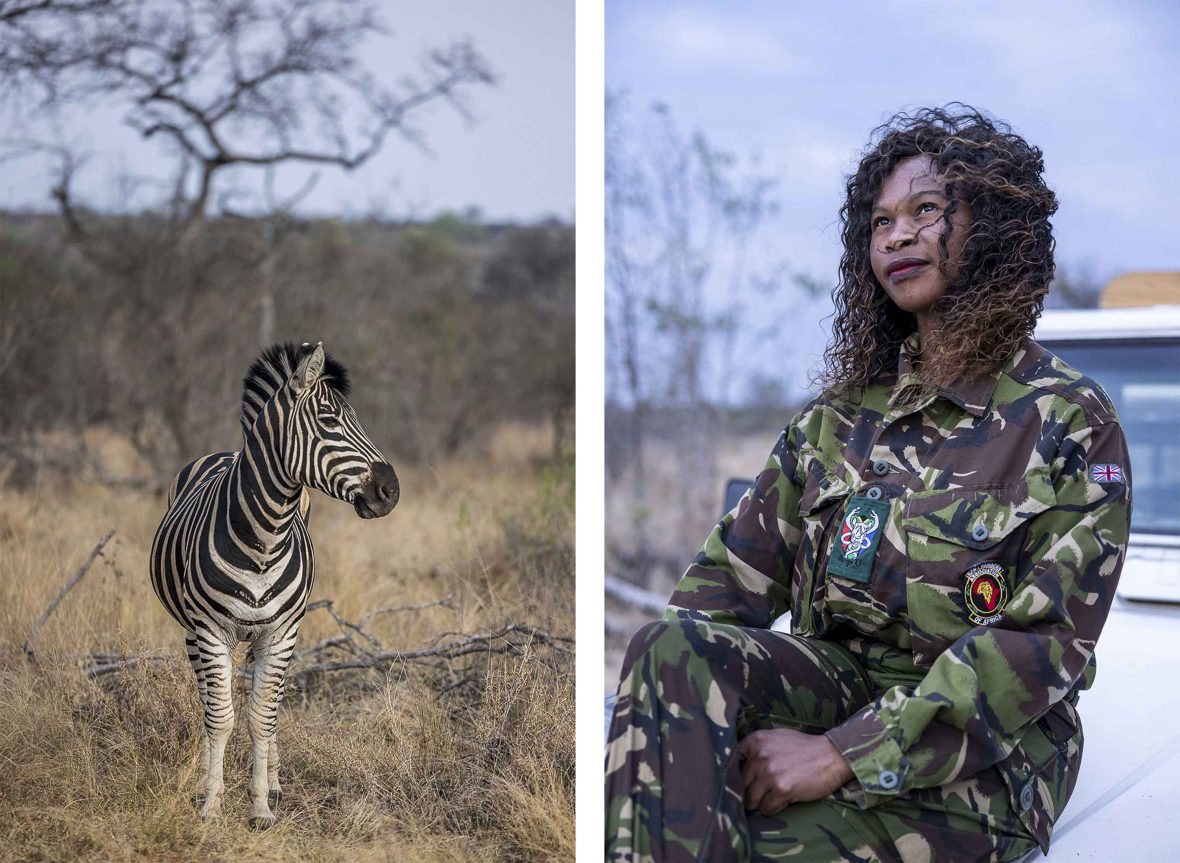
Transfrontier Africa’s Bush Babies education programme is central to this. The scheme sees Black Mambas-affiliated teachers give animal conservation classes in 11 schools near the park. Bush Babies manager Lewyn Maefala gives a class about vultures at Mashishimale Primary School. Pupils are told that the corpse-picking birds should be cherished, not killed. A dead vulture can be valuable here, with some believing that eating vulture eye gives power to see the future.
“These people live just 10 kilometres from the reserve gate, but most don’t have access to that place,” says Maefala. “We’re among poor communities. Would you spend 200 rand to see animals [if you lived here]? I’d rather buy food.”
I ask Maefala why, if the locals don’t normally visit the park, they should be told to value its animals. And whether her classes are mainly for the benefit of the children, or park owners keen to curtail the next generation of poachers.
Bush Babies funds trips to the reserve for locals, she says, plus Scout camps where they observe the area’s iconic species. Opening kids’ eyes to conservation opens job possibilities as well as connecting them to the nature close to them, yet normally out of reach. “When I started here and asked, ‘What do you want to be when you grow up?’, they wanted to be a policeman or work at the mine,” she tells me. “Nobody mentioned anything in conservation. Now they get to say, ‘Yeah, I might want to do this’.”
The formation of the Mambas has affected local job prospects for women directly, as well as indirectly through the classes. I join five new Mambas recruits as they power through obstacle courses on a training day. Hundreds of locals applied for these positions, which offer steady employment and a higher-than-local-average salary.
“So many youth are not working,” says Mkhabela. “Even if you get a job, it will be for three months or a year. Sometimes you don’t get paid; you get scammed. It’s difficult, because of corruption.”
One fact mildly inconvenient to the squad’s narrative is that the Black Mambas were formed by a white man: Craig Spencer, 48, Transfrontier Africa’s managing director.
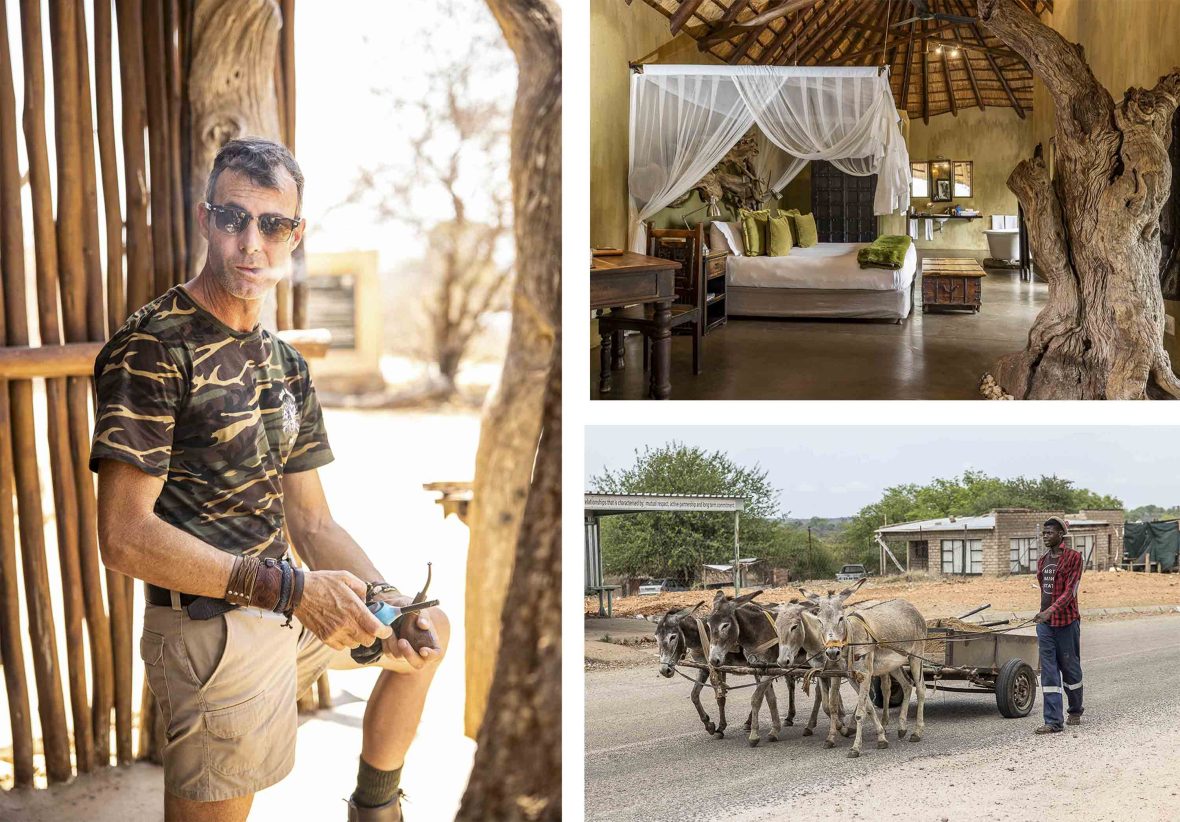
Sucking a large pipe, Spencer says he formed the Mambas partially to bridge divides between the exclusive reserve and poor local communities. And because, in his view, women are less corruptible than men. Poachers often try to pay reserve insiders for animal location knowledge.
“We wanted multi-generational investment in people,” Spencer says. “And we wanted the primary caregivers, because they have the right moral compass.”
“Say I had a trophy hunter from Texas coming in [to hunt with a permit]… but if your [a local’s] uncle comes in here tonight, he’s going home in a body bag. What fucking mentality would we be sending to the villagers?”
- Craig Spencer
With Spencer running the show and other senior leaders being white, the Mambas structure isn’t quite as empowering as their media coverage suggests. It’s not quite “all-female” either, with the only four Mambas carrying guns being male.
In her 2022 documentary Black Mambas, Germany-based director Lena Karbe invited questions about whether the women, under white leadership, were being used to impose colonialist-style priorities on poor locals. Spencer hisses at my mention of Karbe’s film. “She made it sound like we’re forcing these people to protect wildlife so white people can enjoy it,” he says. “That’s everything we’re against.”
Indeed, the Mambas structure spurs thought about power dynamics, and Spencer is aware that the fence surrounding the reserve is symbolic as well as functional. In the documentary, he acknowledges: “The park is the last bastion of the old white colonial mentality.”
“We’re living in a post-apartheid arena,” he says today. “We haven’t addressed the way our protected area network was established. Local people were excluded from that landscape.”
Phasing out trophy hunting in the mid-2010s in Olifants West, where Spencer is the warden, was another step towards addressing this exclusion. He says that allowing ‘official’ hunting is hypocritical if you’re preaching animal conservation to locals. “Say I had a trophy hunter from Texas coming in [to hunt with a permit]… but if your [a local’s] uncle comes in here tonight, he’s going home in a body bag. What fucking mentality would we be sending to the villagers?”
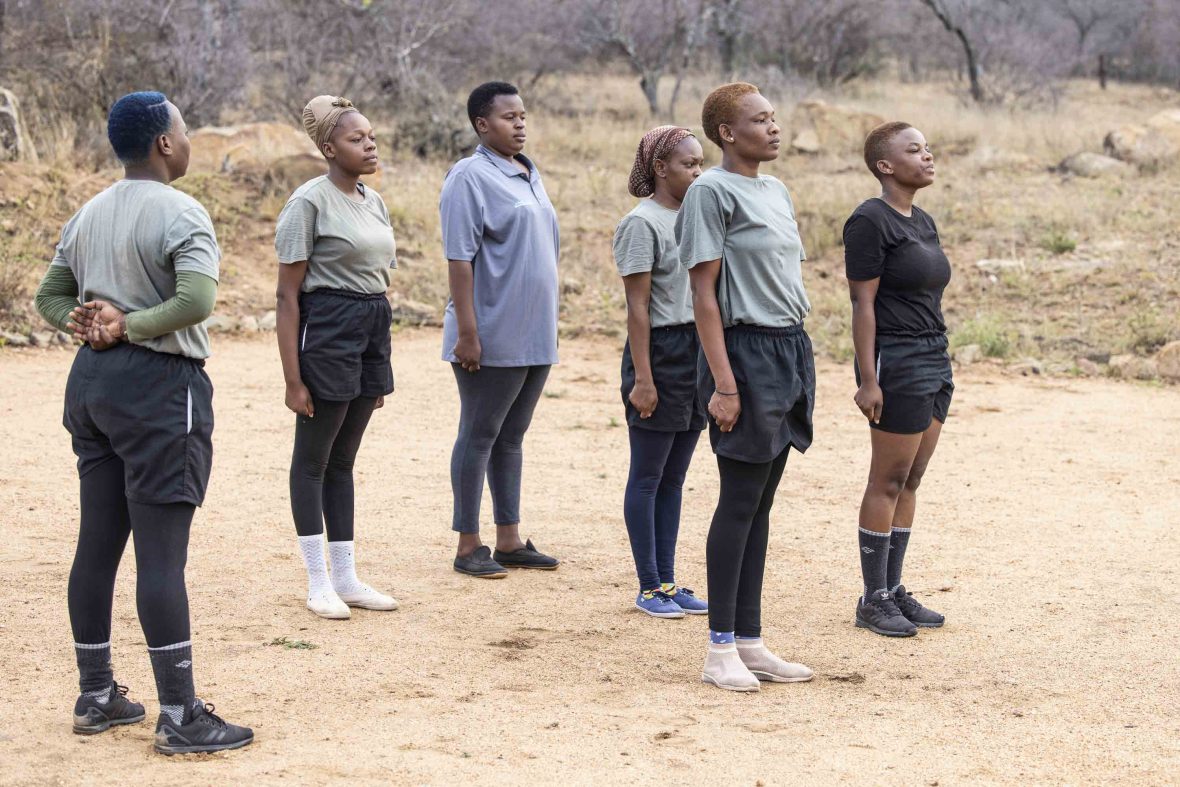
The function of the Black Mambas is clearly more complicated than simply being badass role models and animal-savers. It’s equally clear, though, that although huge divides still exist, these women are connecting in many ways that are positive for their communities, the animals, and, by extension, the reserve owners. Certainly, they have more positive local impact than the usual ‘male enforcers with guns’ anti-poaching model seen elsewhere.
Transfrontier Africa manager Izel Pieterse, 25, says she noticed this at a funeral attended by the Mambas. “One of the old men from the community said he wanted to thank them for everything they do,” she says. “He was one of the families they supported during Covid, by giving food parcels. They do have an impact. Not just patrolling the fence, but being the mothers of the community.”
Mkhabela concurs. “Women are the mothers of the earth,” she says. “Whatever is in the earth, women are going to protect it, the same way they protect their kids.”
—-
The writer and photographer’s accommodation for this trip was provided by Pondoro Game Lodge, via Ker & Downey Africa, which offers trips including time with the Black Mambas and a donation to the organization.
***
Adventure.com strives to be a low-emissions publication, and we are working to reduce our carbon emissions where possible. Emissions generated by the movements of our staff and contributors are carbon offset through our parent company, Intrepid. You can visit our sustainability page and read our Contributor Impact Guidelines for more information. While we take our commitment to people and planet seriously, we acknowledge that we still have plenty of work to do, and we welcome all feedback and suggestions from our readers. You can contact us anytime at hello@adventure.com. Please allow up to one week for a response.

Jamie Fullerton is a British freelance writer based on the road, most of the time. Formerly features editor of NME (when it was a magazine as well as a website), he has written for titles such as The Guardian, The Times and The Sunday Times, The Telegraph, CNN and Atlas Obscura. He once had a Top Tip published in Viz.
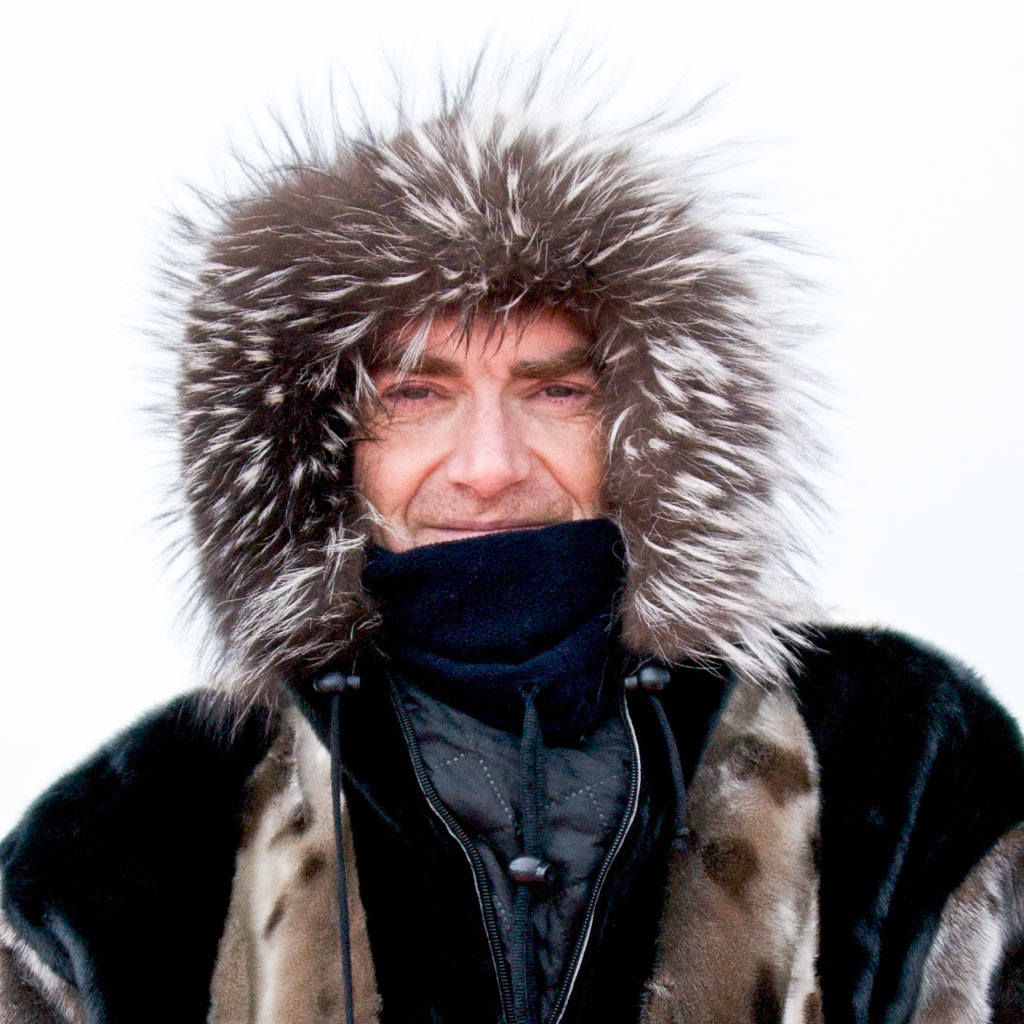

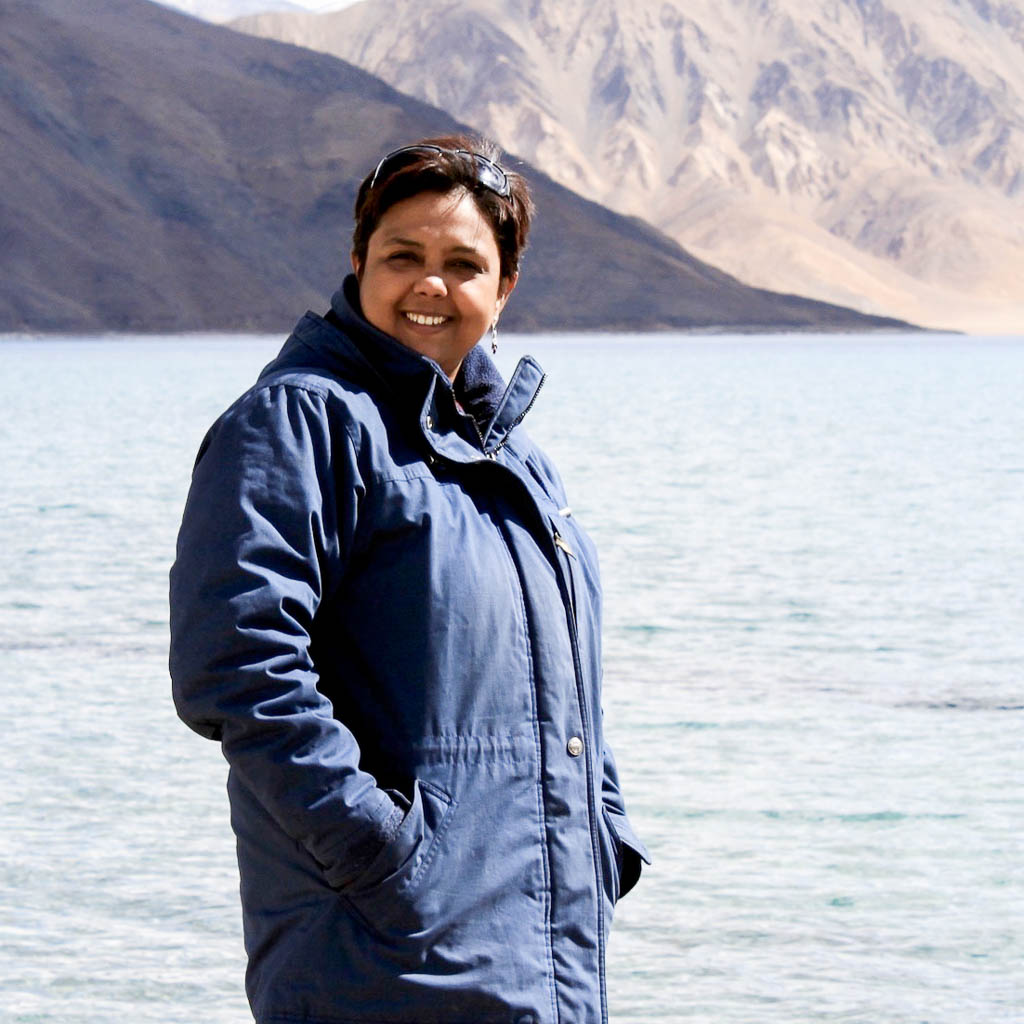

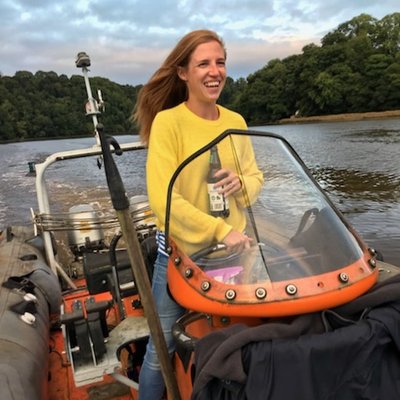

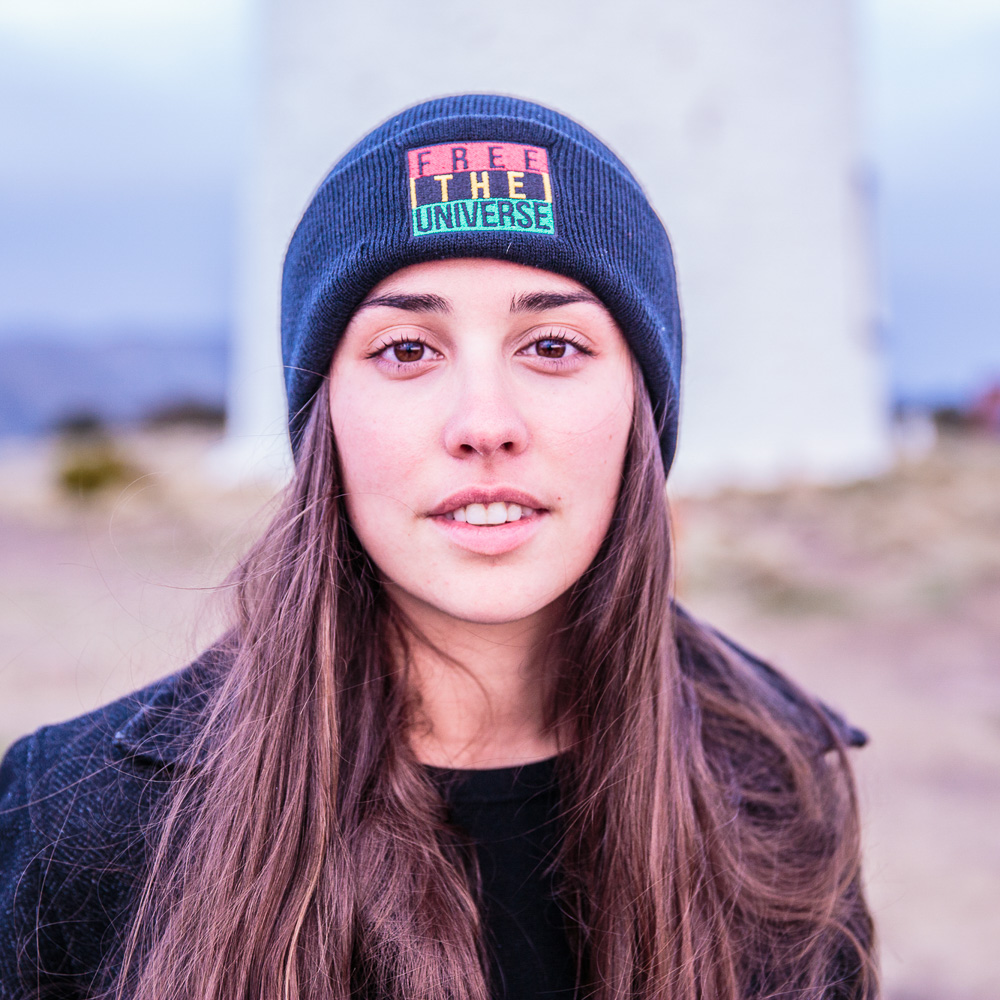

Can't find what you're looking for? Try using these tags: